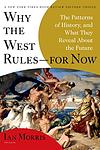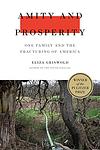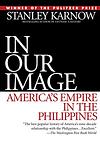The Greatest "History, Physical Sciences" Books of All Time
Click to learn how this list is calculated.
This list represents a comprehensive and trusted collection of the greatest books. Developed through a specialized algorithm, it brings together 300 'best of' book lists to form a definitive guide to the world's most acclaimed books. For those interested in how these books are chosen, additional details can be found on the rankings page.
Genres
The category of "History" in books refers to the study and interpretation of past events, societies, and cultures. It encompasses a wide range of topics, including political, social, economic, and cultural developments, as well as the lives of individuals and groups who have shaped the course of history. History books can be written from various perspectives and may focus on specific time periods, regions, or themes. They aim to provide readers with a deeper understanding of the past and its impact on the present.
The "Physical Sciences" category encompasses a broad range of books that delve into the non-living systems of the natural world, offering insights into the fundamental principles and phenomena that govern the universe. This category includes disciplines such as physics, chemistry, astronomy, geology, and meteorology, among others. Books within this genre may cover topics from the subatomic particles and forces that constitute the fabric of space-time to the vast cosmic structures of galaxies and the universe at large. They can also explore the chemical reactions that underpin the behavior of matter, the geological processes that shape our planet, and the atmospheric dynamics that influence our weather and climate. Whether aimed at students, professionals, or enthusiasts, these books serve as a gateway to understanding the laws of nature and the scientific methodologies used to uncover them, often combining theoretical concepts with practical applications and the latest research findings.
Countries
Date Range
Reading Statistics
Click the button below to see how many of these books you've read!
Download
If you're interested in downloading this list as a CSV file for use in a spreadsheet application, you can easily do so by clicking the button below. Please note that to ensure a manageable file size and faster download, the CSV will include details for only the first 500 books.
Download-
1. Silent Spring by Rachel Carson
This influential environmental science book presents a detailed and passionate argument against the overuse of pesticides in the mid-20th century. The author meticulously describes the harmful effects of these chemicals on the environment, particularly on birds, hence the metaphor of a 'silent spring' without bird song. The book played a significant role in advancing the global environmental movement and led to a nationwide ban on DDT and other pesticides in the United States.
-
2. Dialogue Concerning the Two Chief World Systems by Galileo
This scientific work presents a series of discussions between three characters, each representing a different perspective on the cosmological theories of the time. Throughout the dialogue, the characters debate the merits of the Ptolemaic geocentric system, which asserts that the Earth is the center of the universe, and the Copernican heliocentric system, which proposes that the Sun is the center. The author uses these discussions to subtly argue in favor of the Copernican system, challenging the traditional religious and scientific beliefs of his time.
-
3. Rising Tide by John Barry
"Rising Tide" is a historical account that explores the impact of the Great Mississippi Flood of 1927 on American society. The narrative details the catastrophic event and the subsequent political and social changes that occurred, including the shift in African American voting patterns from the Republican to the Democratic party. The book also delves into the engineering efforts to control the Mississippi River and the environmental consequences of such efforts.
-
4. Cadillac Desert by Marc Reisner
"Cadillac Desert" is a detailed exploration of the water crisis in the American West. The book delves into the history, politics, and environmental impact of water development in this region, highlighting the role of government policies and engineering projects. It also discusses the unsustainable use of water resources, the impact on local ecosystems, and the potential consequences of continued mismanagement, providing a comprehensive overview of a critical environmental issue.
-
5. Zeitoun by Dave Eggers
The book is a non-fiction account of a Syrian-American contractor named Zeitoun who decides to stay in New Orleans during Hurricane Katrina. Despite the chaos, he paddles around the city in a canoe, helping those he can. However, he is arrested and accused of looting, leading to a harrowing experience in prison. The narrative explores themes of family, survival, and the breakdown of civil liberties in times of crisis.
-
6. The Influence of Sea Power Upon History, 1660-1783 by Alfred Thayer Mahan
This book is a comprehensive examination of the importance of naval warfare in the period between 1660 and 1783. The author argues that sea power was a crucial factor in determining the outcomes of historical events during this period, including the rise and fall of empires and the outcomes of wars. The book provides detailed analyses of major naval battles, strategies, and technologies, as well as the economic and political factors that influenced the development of naval power. It is considered a seminal work in the field of naval history and strategy.
-
7. Why the West Rules - For Now: The Patterns of History, and What They Reveal About the Future by Ian Morris
This book is a comprehensive exploration of the historical and cultural patterns that have led to Western dominance in the world. The author uses a broad range of evidence from archaeology, genetics, and linguistics to trace the development of East and West from prehistoric times to the present, arguing that physical geography, rather than culture, religion, or great men, is the primary driving force behind the rise of the West. The book also offers a forecast for the future, predicting a shift in global power from the West to the East.
-
8. Collapse by Jared Diamond
"Collapse" is an exploration of why certain societies throughout history have thrived while others have deteriorated and collapsed. The book delves into environmental problems, climate change, rapid population growth, and unwise political decisions as factors that contribute to the downfall of a civilization. The author uses examples from history such as the Mayans, the Vikings in Greenland, and modern examples like Rwanda and Haiti, to illustrate his points. It serves as both a historical analysis and a warning for modern societies to learn from the past in order to avoid a similar fate.
-
9. The Exploration of the Colorado River by John Wesley Powell
This book is a firsthand account of the first U.S. government-sponsored passage through the Grand Canyon. The author, a one-armed Civil War veteran, and his team of nine men risked their lives to accomplish this feat in 1869. They faced dangerous rapids, food shortages, and potential attacks from Native American tribes. The narrative provides detailed descriptions of the geography, geology, and Native American inhabitants of the region, offering invaluable insights into the uncharted territory of the American West.
-
10. Amity and Prosperity: One Family and the Fracturing of America by Eliza Griswold
This book is a detailed account of a family living in rural Pennsylvania, whose lives are disrupted by the fracking industry. It explores the economic desperation that leads small towns to welcome fracking, the environmental and health disasters that follow, and the legal battles that families must wage to protect their rights. The narrative also delves into the political and social divides that the fracking industry exacerbates, providing a comprehensive look at the impact of this controversial practice on American society.
-
11. The Americans: The Democratic Experience by Daniel J. Boorstin
"The Americans: The Democratic Experience" delves into the social, political, and cultural evolution of America, focusing on the period from the end of the Civil War to the early 20th century. The book explores the impact of the democratic experience on various aspects of American life, including business, technology, and the arts. It also examines how the democratic experience shaped American identity and values, and influenced the country's growth and development.
-
12. In Our Image: America's Empire in the Philippines by Stanley Karnow
This book provides a comprehensive historical account of the relationship between the United States and the Philippines, from the time of Spanish colonial rule, through American occupation and its aftermath. It explores the motivations, actions and impacts of American imperialism in the Philippines, highlighting the cultural, political and economic influences that continue to shape the Philippines today. The book also delves into the complex interplay of power, resistance, and collaboration between the Americans and the Filipinos, providing a nuanced understanding of colonialism and its enduring effects.
-
13. A Nation under Our Feet by Steven Hahn
"A Nation Under Our Feet" is a comprehensive study of African American political history during the 19th century, particularly from the Civil War to World War I. The book explores the struggle of African Americans to gain and sustain political power within the American democracy. It highlights their journey from slavery to freedom, the establishment of their own institutions and political movements, and their resistance to both subtle and overt forms of disenfranchisement. The book provides a detailed analysis of the black political consciousness and its impact on the American political landscape.
Reading Statistics
Click the button below to see how many of these books you've read!
Download
If you're interested in downloading this list as a CSV file for use in a spreadsheet application, you can easily do so by clicking the button below. Please note that to ensure a manageable file size and faster download, the CSV will include details for only the first 500 books.
Download











